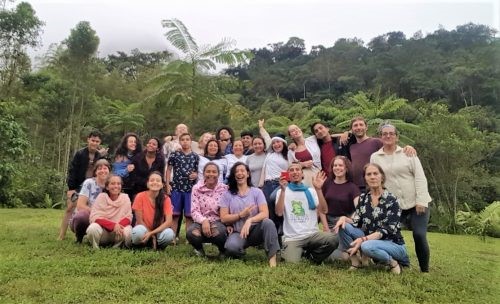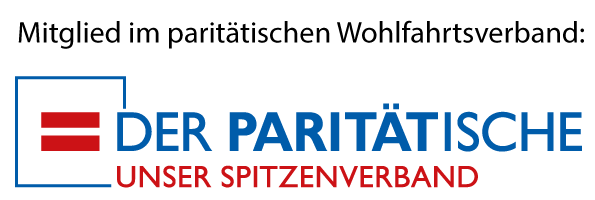SALEM-Statute
The statute of SALEM International constitutes the non-profit status and the purpose of the company and sets out the structure of our organisation.
1 Company, registered office and fiscal year
(1) The name of the company is “SALEM International Gemeinnützige Gesellschaft [NPO LLC]”. (2) The company has its registered office in Stadtsteinach. (3) The fiscal year is the calendar year.
2 Profit status and purpose of the company
(1) On the basis of Christian-humanitarian values, the company pursues non-profit and/or charitable purposes exclusively and directly in terms of the section “tax privileged purposes” of the tax code. (2) The object of the company is with this proviso:
In the social field
- The establishment and operation of children`s and youth welfare services, institutions and schools providing children and adolescents with the best possible preparation for an independent and successful life in society. 2. The establishment and operation of educationally and therapeutically oriented facilities in the fields of agriculture and forestry, craftsmanship and the arts with the aim of integrating young people into employment or providing socially disadvantaged adults with meaningful work. 3. The care of adolescents and adults with mental illnesses, and of adults and adolescents with physical and/or learning disabilities in order to give them support and a home. 4. The care of socially disadvantaged and endangered persons, of prisoners and ex-convicts with the objective of integration into society. 5. The operation of facilities for the elderly and houses for mixed generations, and thus the support for older people as valued members of our society.
In the field of development cooperation
- The promotion of international understanding through peace work and future planning as well as the promotion of cosmopolitan openness and tolerance in all cultural spheres. 7. The promotion of development cooperations, characterised by support and assistance on an equal footing, and which strive for the goal of sustainable development.
In the field of education and research
- To provide education and awareness training, particularly in the areas of peace, sustainability, the environment, development cooperation and health with the objective of creating public awareness of these issues and providing information in a scientifically, legitimate and practical way.
In the field of health
- The establishment and operation of health centres and health resorts. 10. The provision of medical care, research and education with an emphasis on recognised alternative therapies and training methods. 11. The promotion of the health of people entrusted to us, our guests and staff by providing an organic wholemeal vegetarian diet based on ecological principles.
In the field of environmental and animal welfare
- The promotion of animal welfare out of respect of animals as living beings. 13. Support and research into alternatives to animal testing. 14. The promotion of the protection of the environment and nature, particularly through organic farming and gardening, sustainable forestry and the use of renewable energy sources.
3 Share capital
(1) The company’s share capital is DM 50,000,- (German Marks fifty thousand). (2) When raising the share capital of DM 20,000,- to DM 50.000,-, Mr Gottfried Mueller provided the new capital contribution of DM 30,000. One quarter of this has to be paid in immediately in cash for the free disposal of the managers, the rest on their demand.
4 Transfer of shares
(1) The sale of shares or parts thereof is permitted only with consent of the company. If a shareholder dies and is not exclusively succeeded by one or several other shareholders and / or by the Salem foundation based in Stadtsteinach or allocated to them by means of a legacy executed after the death of the shareholder, then the shares must be withdrawn by the company.
(2) In addition, the shareholders’ meeting may, with the consent of the concerned shareholder, decide on the confiscation of shares at any time. The consent of the affected shareholder is not required if a) insolvency proceedings against his assets are instituted or foreclosure actions are pursued in his business share, b) the care of a shareholder is ordered and is not revoked within 6 months c) the shareholder presents an important reason which renders the continuation of the company impossible. In such cases, the affected shareholder does not have a right to vote. In the case of the confiscation of a share, the resigning shareholder does not receive any compensation owing to the non-profit purpose of the company. Instead of confiscation, the company may require that his/ her shares are transferred without charge to the other shareholders in proportion to their shares. In this case the shares are divided accordingly.
5 Shareholders` meeting
(1) The shareholders` meeting is the highest supervisory and controlling body. It decides all fundamental and guiding objectives and actions that are not assigned to the management or the supervisory board. These include in particular the a) appointment of directors b) election of the supervisory board c) receipt of the reports made by the board and the supervisory board d) appointment of auditors for the new fiscal year e) acceptance of the annual accounts and discharge of the board and the supervisory board f) the amendments of the statutes g) decision on the dissolution of the company.
(2) The shareholders’ meeting may replace some members of the board during the term of office if, in respect of the individuals, there exists an important reason that makes the continuation of cooperation impossible. Such a decision must be substantiated in writing.
(3) The general meeting shall be held at least once a year.
(4) Corporate resolutions are passed by simple majority, if the law does not explicitly stipulate a greater majority. 100, – DM share value represents one vote.
(5) The shareholders have to be invited to the shareholders` meetings at least one week in advance in writing (e.g. letter, fax, e-mail), if they do not vote in writing.
(6) Written decision is possible only with the consent of all shareholders.
6 Representation and management
(1) The company has at least two directors who usually work full time. The company is represented by two directors jointly or by a managing director in conjunction with an authorised signatory.
(2) The shareholders’ meeting can grant individual directors the authority to represent the company alone, even if several managing directors exist.
(3) The management manages the company under their own responsibility. They are responsible for developing and implementing the strategic direction of the organisation. In regard to this, staff shall be involved in policy-making and problem-solving.
(4) The management compiles the progress report and provides supervisory board with meaningful documents required for decisions on relevant issues relating to planning, strategy, business development as well as on risk factors.
7 Supervisory board
(1) The supervisory board advises the management and ensures its ongoing control. In this regard, the members of the supervisory board will be informed regularly, promptly and comprehensively by the management. Regarding decisions of fundamental importance, the supervisory board is directly involved.
(2) The supervisory board consists of at least three members – not exceeding five, who work in a voluntary capacity and who are characterised by a specific commitment to Salem. In its entirety, the supervisory board should cover the areas of responsibility and qualifications that are relevant to Salem.
(3) The supervisory board members are elected by the shareholders’ meeting for a term of three years. Re-election is possible. The members of the supervisory board may resign by writing (e.g. letter, fax, email) to the chairman of the board or the management within a four week period.
(4) The supervisory board shall elect a chairman and a deputy from among its members for the tenure of office determined in paragraph 3, article 1.
(5) The supervisory board should meet at least three times per calendar year. A meeting has to be convened once per calendar year. The deliberations of the supervisory board shall be convened by the chairman with a period of 14 days in writing (e.g. letter, fax, e-mail). In urgent cases, the chairman may shorten the period and convene a meeting orally, by telephone, by email or by fax.
(6) The members of the managing director shall attend the meetings of the supervisory board. Discussions on individual agenda items may be held at the request of a supervisory board member without the presence of the management.
(7) Outside of meetings, written or telex resolutions are permitted if no member objects to this procedure within a reasonable time limit specified by the chairman. Article 1 shall apply mutatis mutandis to resolutions made by fax or through electronic media.
(8) The supervisory board has a quorum if at least half of the members are represented. Regarding decisions, unanimity is to be striven for. Decisions are taken by a simple majority of votes cast by the board members; abstentions and invalid votes are not counted. In a tie, no decision has been reached.
(9) The minutes are compiled on the decisions of the board that have to be signed by the chairperson and another supervisory board member.
8 Profit appropriation
(1) Means of the company may only be used for statutory purposes. The company acts selflessly and does not pursue goals primarily serving its own economic purposes. The shareholders receive no dividends and in their capacity as shareholders, no other benefits from funds of the company.
(2) Upon the dissolution of the company, the shareholders will only be paid back their equity shares or the fair market value of the contributions made by them. The shareholders’ meeting decides on the use of the annual returns.
In case of the liquidation of the company or upon or the disappearance of their former purpose, the non-profit and / or charitable foundation based in SALEM Stadtsteinach will receive the remaining assets of the company, which then shall be used directly and exclusively for non-profit and / or charitable purposes.
9 Final provisions
(1) Announcements of the company shall be made only in the electronic Federal Gazette.
(2) If individual provisions of this contract are or become wholly or partly ineffective, the validity of the remaining provisions shall not be affected. Instead of the ineffective regulation, such legislation shall be deemed as agreed on, which achieves the intended result in a permissible manner. If this contract proves to be defective, adequate rules will replace the regulatory gap, which comply with the actual or presumed intention of the shareholders and the purpose of the company.
The above text version was approved at the ordinary shareholders’ meeting on 22 December 2009 and was entered into the Commercial Register of the Bayreuth jurisdiction under number HRB 308 on 4 January 2010.




